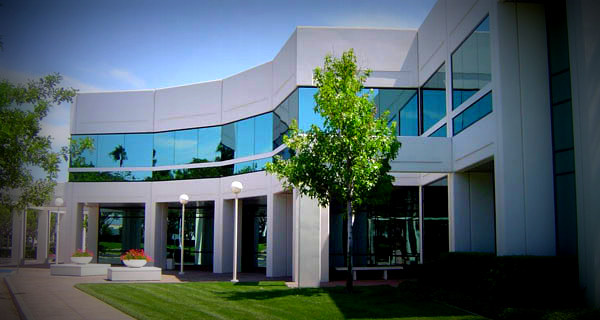Real Estate
Commercial Real Estate: The Ultimate Guide To Smart Property Success

Commercial real estate explained simply — learn how it works, types, benefits, trends, and expert tips to navigate the U.S. property market with confidence.
Commercial real estate refers to properties used for business purposes, like offices, retail spaces, warehouses, and multifamily apartments. It generates income through rent, appreciation, or resale, making it a cornerstone of the U.S. economy and a smart choice for long-term investors.
Commercial Real Estate: Everything You Need To Know 🏢
Have you ever walked past a busy office building, buzzing retail plaza, or sleek apartment complex and wondered who owns all that? Chances are, you’re looking at commercial real estate (CRE) — a powerful sector that drives local economies, creates jobs, and offers huge investment potential.
Let’s break it down in plain English so you can finally understand what commercial real estate really is, how it works, and why it’s such a big deal in the U.S. property world.
What Is Commercial Real Estate? 🏙️
In simple terms, commercial real estate means property used for business purposes rather than personal living. That includes office buildings, shopping centers, warehouses, and multifamily apartments.
Unlike residential homes, these properties are designed to make money — either through rent, capital appreciation, or both. Investors, corporations, and small business owners all play a role in this ecosystem.
Types Of Commercial Real Estate 🏬
Commercial properties fall into several categories, each with its own purpose, risk level, and income potential.
Here’s a quick look at the main types:
| Property Type | Description | Common Tenants |
| Office | Used by businesses for administrative work | Law firms, startups, corporations |
| Retail | Designed for selling goods/services | Stores, restaurants, salons |
| Industrial | Used for production, storage, and logistics | Warehouses, factories, distribution centers |
| Multifamily | Residential buildings with 5+ units | Apartment complexes, condos |
| Hospitality | Focused on short-term stays | Hotels, motels, resorts |
How Commercial Real Estate Works 💡
Commercial real estate operates on the principle of income generation. Owners either lease the property to tenants or manage it directly for profit.
The process usually includes:
- Acquiring the property (through purchase or financing)
- Leasing space to businesses or individuals
- Collecting rent and managing maintenance
- Earning appreciation over time as the property’s value rises
It’s like owning a mini-business — one that can grow in value as the market evolves.
Why Commercial Real Estate Matters To The U.S. Economy 🇺🇸
CRE isn’t just about buildings — it’s about growth. This sector supports millions of jobs, from construction workers to real estate agents, and contributes billions in tax revenue.
When businesses expand, they lease more space. When they shrink, vacancies rise. It’s a reliable barometer of economic health.
Major Players In The CRE Industry 👥
The commercial real estate world is filled with different professionals who make things happen.
- Investors – provide capital and expect returns
- Developers – create new buildings and renovate existing ones
- Brokers – connect buyers, sellers, and tenants
- Property Managers – oversee daily operations
- Lenders – finance deals and projects
Each one plays a vital role in keeping the real estate cycle moving.
Benefits Of Investing In Commercial Real Estate 💰
If you’re wondering why so many people are drawn to this market, the answer is simple — profit potential and stability.
Here’s what makes CRE stand out:
- Steady Cash Flow: Tenants pay rent monthly, providing reliable income.
- Long-Term Leases: Contracts often span 5–10 years, ensuring stability.
- Tangible Asset: You own a physical property that appreciates over time.
- Inflation Hedge: Rents tend to rise with inflation, protecting your returns.
Risks You Should Know ⚠️
Of course, no investment is risk-free. Commercial real estate has its share of challenges.
- Market Fluctuations: Economic downturns can lower demand.
- High Upfront Costs: Buying a property requires significant capital.
- Vacancy Rates: Empty units mean lost income.
- Maintenance Costs: Older buildings can be expensive to maintain.
The key is to do your homework, understand your local market, and plan for the long haul.
How To Evaluate A Commercial Property 🔍
Before buying or leasing, you need to understand what makes a good deal.
| Factor | What To Check | Why It Matters |
| Location | Accessibility, traffic, nearby businesses | Drives tenant demand |
| Cap Rate | Net operating income ÷ purchase price | Measures profitability |
| Tenant Quality | Financial strength of occupants | Reduces default risk |
| Market Trends | Vacancy rates, rent growth, local economy | Predicts future value |
Smart investors use data, not just intuition, to make decisions.
Financing Options For Commercial Real Estate 💵
Getting funding is one of the biggest hurdles for new investors. Luckily, there are multiple ways to finance a property:
- Traditional Bank Loans – Best for established investors
- Small Business Administration (SBA) Loans – Great for owner-operators
- Private Lenders – Offer flexibility but higher interest rates
- REITs (Real Estate Investment Trusts) – A hands-off way to invest in CRE
Each financing route comes with unique terms, so always compare before signing.
Commercial Leases Explained 📝
A commercial lease defines the relationship between landlord and tenant. Unlike residential leases, they’re highly customizable.
Common lease types include:
- Gross Lease: Tenant pays a fixed rent; landlord covers expenses.
- Net Lease: Tenant pays rent plus part of the taxes and maintenance.
- Percentage Lease: Rent is based on a percentage of sales (common in retail).
Understanding your lease type can make or break profitability.
Emerging Trends In Commercial Real Estate 🌎
The U.S. CRE landscape is evolving fast. Some key trends include:
- Remote Work Impact: Smaller offices and flexible spaces are booming.
- Sustainability: Green buildings attract modern tenants and tax benefits.
- E-Commerce Growth: Warehousing and logistics spaces are in high demand.
- Technology Integration: Smart buildings use IoT for efficiency.
Staying ahead of these shifts can help investors and tenants thrive.
Top U.S. Markets For Commercial Real Estate 📈
Some cities are outperforming others in CRE growth.
| City | Key Sector | Market Outlook |
| Austin, TX | Tech & Startups | High growth potential |
| Miami, FL | Hospitality & Retail | Strong post-pandemic rebound |
| Dallas, TX | Industrial & Office | Steady job growth |
| Atlanta, GA | Logistics & Warehousing | Expanding transport hubs |
| Denver, CO | Multifamily | Consistent demand |
These regions offer strong returns, population growth, and business-friendly environments.
How Technology Is Transforming CRE 🧠
Technology is changing how we buy, sell, and manage properties.
- Virtual Tours let investors explore spaces remotely.
- AI Analytics predict market shifts and tenant trends.
- Blockchain Contracts ensure transparency in deals.
- Smart Sensors reduce energy costs and improve tenant comfort.
If you’re not using tech, you’re leaving efficiency — and money — on the table.
Sustainability In Commercial Real Estate 🌱
Green buildings aren’t just a trend — they’re the future.
Features like solar panels, efficient lighting, and LEED certifications boost property value and tenant satisfaction.
Plus, sustainable buildings can:
- Lower operating costs
- Improve air quality
- Qualify for tax incentives
Environmentally conscious development is now a major selling point in the market.
How To Start In Commercial Real Estate 🚀
If you’re new to CRE, start small and learn as you go.
- Study the Market: Understand property types and local demand.
- Build a Network: Connect with brokers, lenders, and property managers.
- Find a Mentor: Learn from someone experienced in CRE investing.
- Start with REITs: Gain exposure without owning physical property.
Remember, success in commercial real estate is about strategy, not speed.
The Future Of Commercial Real Estate 🔮
Commercial real estate will continue to evolve with technology, population shifts, and economic trends.
Hybrid work, sustainability, and digital transformation will shape how and where people do business. Investors who adapt early will reap the biggest rewards.
In short, the future looks bright for those who stay informed, flexible, and proactive.
Conclusion 🎯
Commercial real estate isn’t just for big corporations or deep-pocketed investors. It’s a diverse, opportunity-filled market that fuels communities, supports small businesses, and builds long-term wealth.
Whether you’re exploring your first investment, managing a portfolio, or just curious about how the system works — understanding CRE gives you a serious advantage in today’s economy.
FAQs
- What is the difference between commercial and residential real estate?
Commercial real estate is used for business purposes, while residential real estate is for personal living. CRE includes offices, retail, and warehouses, whereas residential involves homes and apartments. - How do you invest in commercial real estate?
You can invest directly by buying a property or indirectly through REITs or real estate funds. Start small, learn the market, and focus on stable locations. - Is commercial real estate a good investment in 2025?
Yes, it remains strong, especially in industrial and multifamily sectors. Trends like e-commerce and remote work continue to reshape opportunities. - What are the main types of commercial properties?
The main categories are office, retail, industrial, multifamily, and hospitality. Each has unique income potential and risk levels. - How does technology impact commercial real estate?
Technology improves management, energy efficiency, and data analysis. It helps investors make smarter, faster decisions and enhances tenant experiences.
-

 Real Estate3 weeks ago
Real Estate3 weeks agoReal Estate Jobs Explained: Powerful Careers With Growth
-

 Real Estate3 weeks ago
Real Estate3 weeks agoBest Paying Jobs In Real Estate Investment Trusts – Powerful and Profitable
-
Real Estate1 week ago
Champions School Of Real Estate – Powerful Trusted Success
-

 Real Estate2 weeks ago
Real Estate2 weeks agoFree Real Estate Sims 4 Hacks That Make Building Fun







